Five youth councils in Norway have taken up the fight against anti-Sámi hate speech. The hope is that a democratic checklist will help Norwegian national and local authorities prevent hatred towards the Sámi minority and make it easier for members of the Sámi community to reclaim their identity. Now the checklist has reached both the Norwegian Parliament and Sweden.
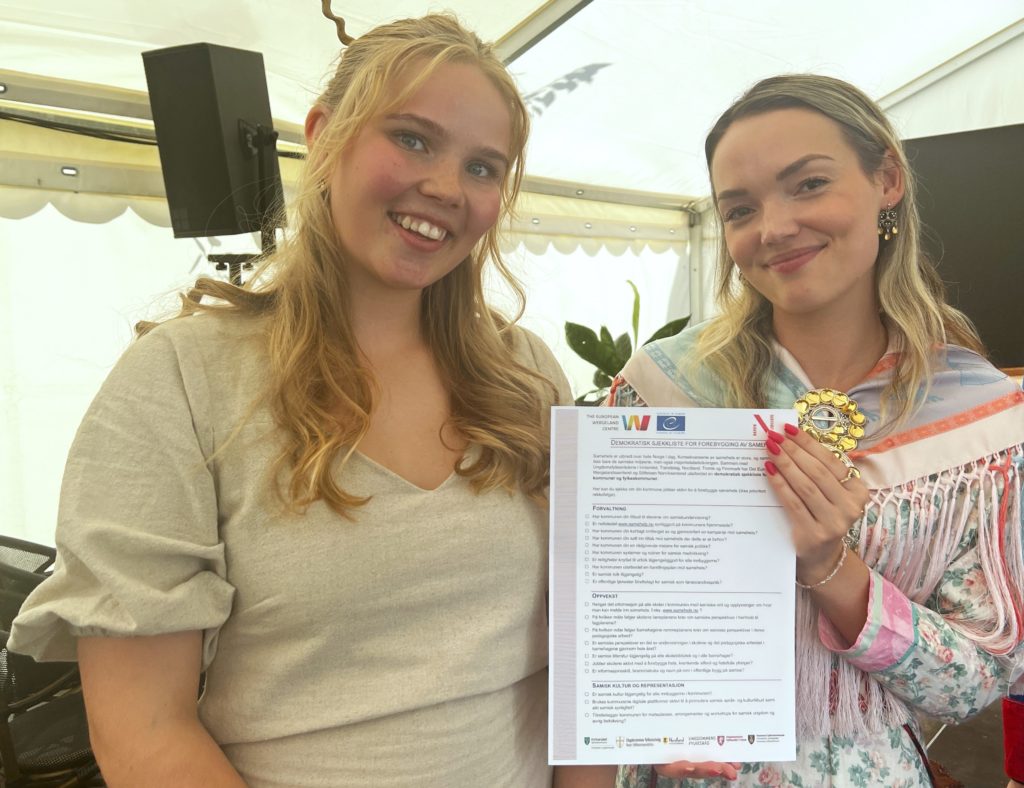
In 2022, the Norwegian National Human Rights Institution (NIM) released a report titled “Attitudes Towards Sámi and National Minorities in Norway,” which reveal that the Norwegian society still struggles with ignorance and prejudice against the country’s Sámi minority. The consequences of such attitudes can include fear of speaking out in public or fear of wearing traditional Sámi clothing (kofte) and other visible signs of Sámi identity.
During the yearly political event Arendalsuka, European Wergeland Centre (EWC) and Stiftelsen Narviksenteret invited discussions and reflections on the prevalence of anti-Sámi discrimination in society. The event was part of the project “Sammen mot samehets” (Together Against Anti-Sámi Hate Speech.)
“We live in a time when many want to reclaim their identity. And with that comes the risk of facing discrimination. Many wish to be part of a Sámi community, and they are then met with discrimination. This is unacceptable,” said Sámi Parliament Member Mikkel Eskil Mikkelsen during the event in Arendal, adding: “For hundreds of years, we tried not to be Sámi, and now we want to reverse that trend, and for that, we need major societal changes.”
Strengthening the Competence of Youth Leaders and Local Authorities
As a peace and human rights center, EWC believes that dialogue, knowledge, and greater contact between groups can reduce conflicts and negative attitudes toward minorities in society. To prevent anti-Sámi discrimination and make it easier for Sámi people to express their opinions and identity, EWC and Stiftelen Narviksenteret launched the project “Sammen mot samehets” (Together Against Anti-Sámi Hate Speech) in the fall of 2023.
Funding from the Norwegian Directorate for Children, Youth, and Family Affairs (Bufdir) made it possible to bring together youth councils from Nordland, Troms, Finnmark, Trøndelag, and Innlandet for a joint meeting place where about 30 delegates received training in democracy, dialogue techniques, human rights, as well as Sámi culture and history.
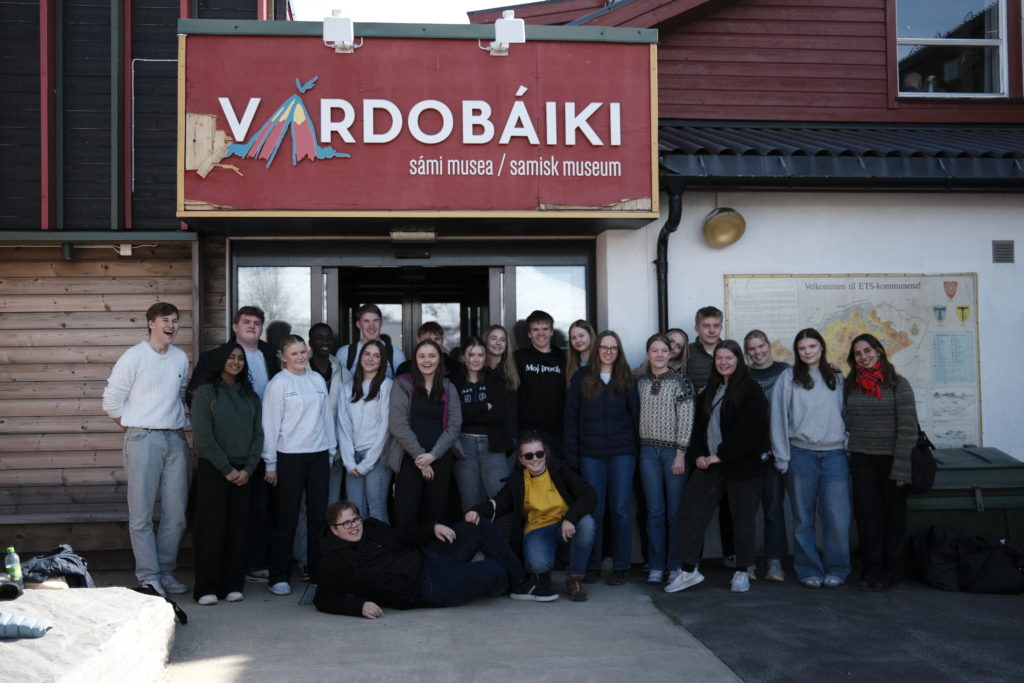
The European Wergeland Centre provides democracy and human rights education to countries across Europe. Key concepts are active participation and learning through dialogue. This approach builds the knowledge, skills, attitudes, and values needed to live together peacefully. The “Together Against Anti-Sámi Hate Speech ” programme was modeled on these same principles, and the project actively utilized exercises developed by the EWC in collaboration with the Council of Europe.
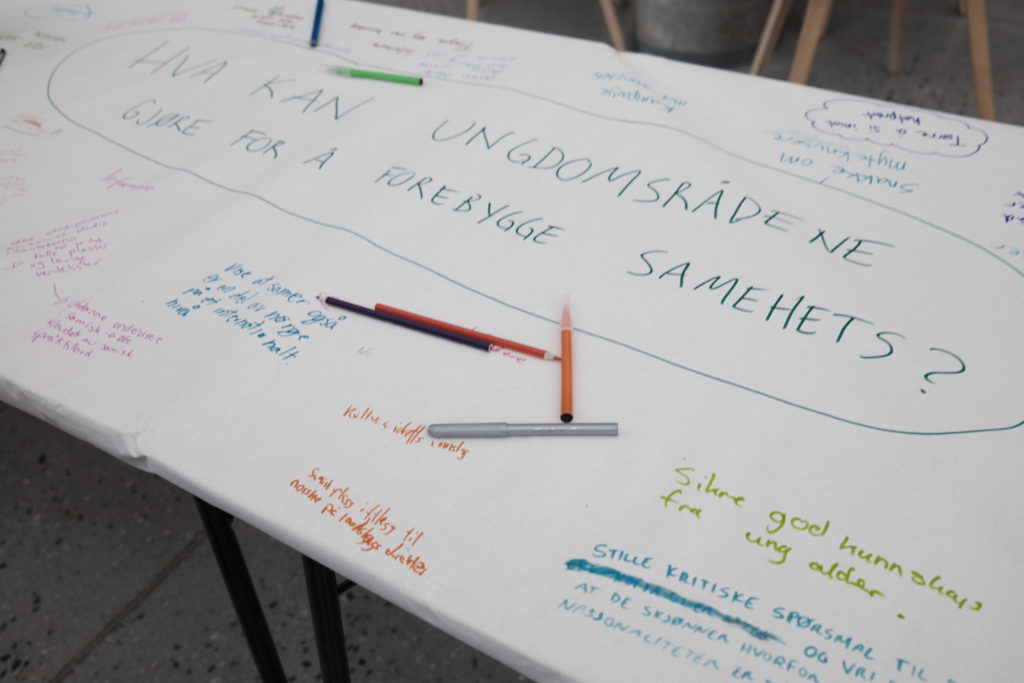
A Democratic Checklist
A concrete result of the project was a democratic checklist with actions that youth councils believe municipalities and local governments across Norway should implement to combat prejudice and negative attitudes toward the Sámi minority. The checklist was developed during a gathering in Narvik in April 2024 and includes 20 specific actions that government organizations can check off as they are implemented.
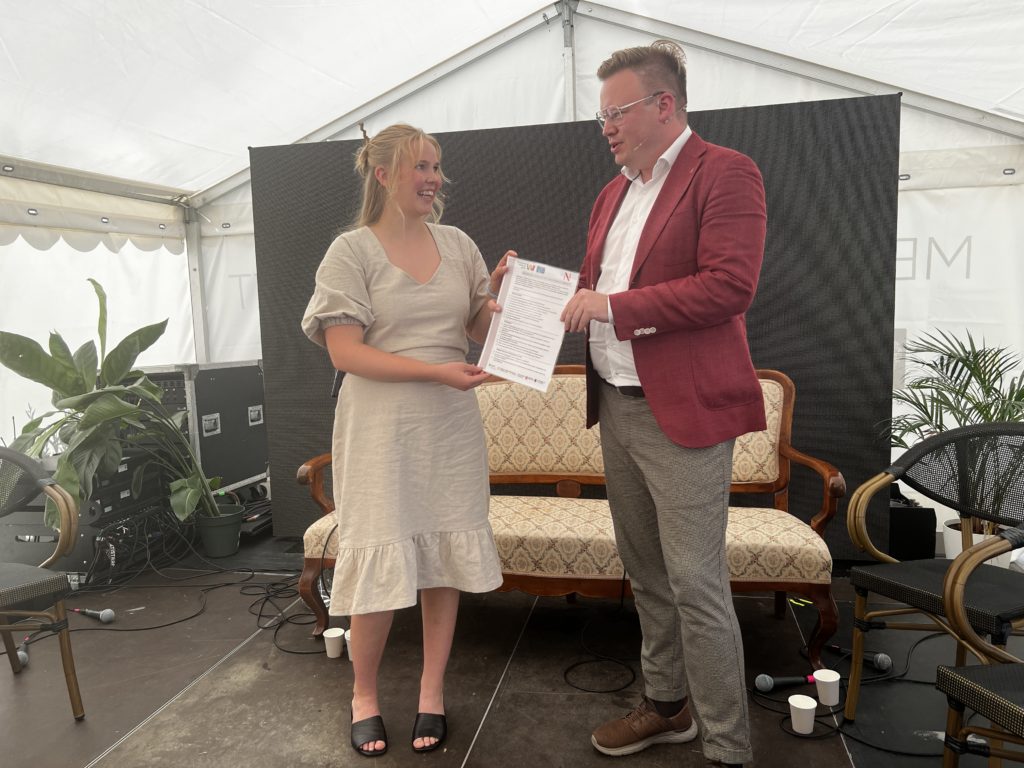
The democratic checklist was ceremonially presented to State Secretary Even Aleksander Hagen by youth delegate Thea Moldstad during the event in Arendal.
In an interview with NRK Sápmi, both State Secretary Hagen and MP Lan Marie Berg praised the checklist initiative: “We need an action plan against anti-Sámi discrimination to implement measures that raise the knowledge level in the population. I don’t think people understand how deeply this affects them and how unacceptable it is, the things people say and do. We need to get the entire population on board,” Hagen told NRK’s reporter.
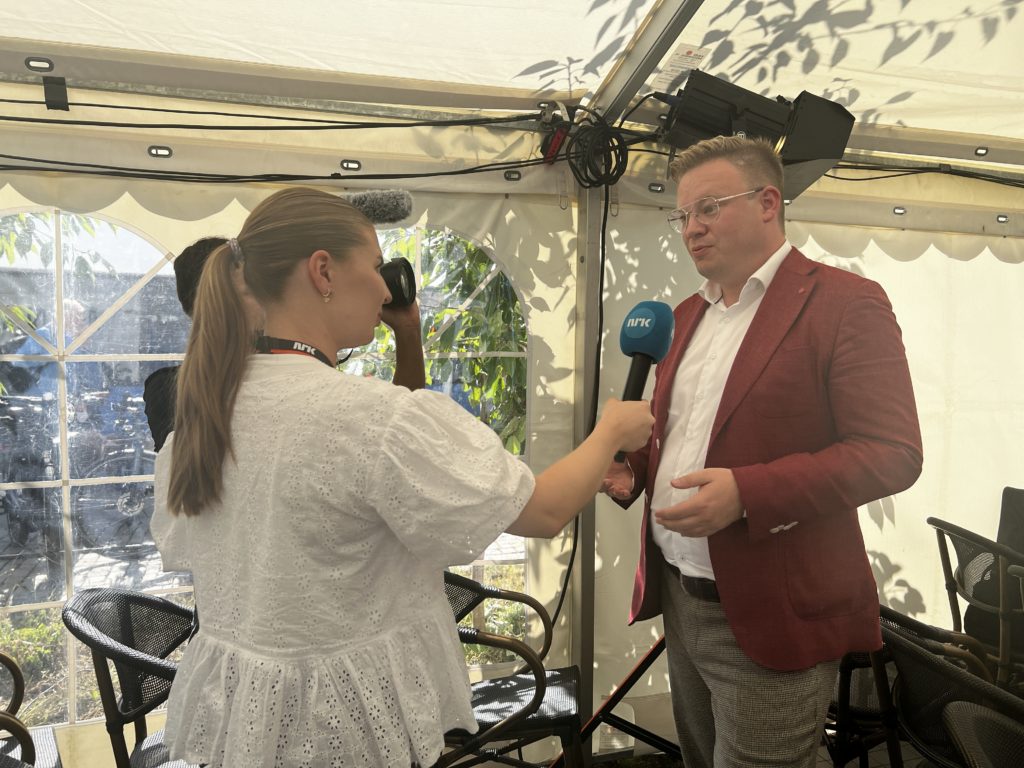
After the event, Sara-Elvira Kuhmunen, the mayor of Sweden’s Saminuorra, expressed her wish that Swedish municipalities should have their own democratic checklist. This fall, the Norwegian government will also present its own action plan against anti-Sámi discrimination, to which the Wergeland Centre has contributed. The Centre will continue to monitor the authorities’ further measures in the fight against anti-Sámi discrimination.